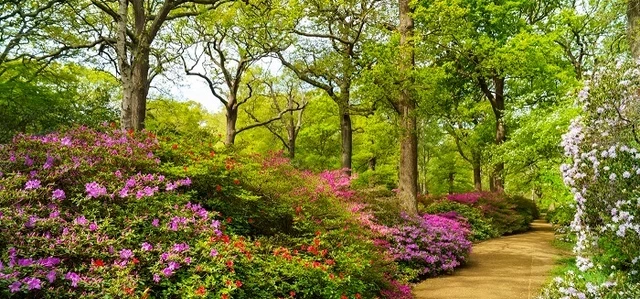
Welcome to Richmond Park
This extraordinary landscape has been shaped by nature for over 700 years.
Key information
Its ancient woods, rolling hills and wide-open grasslands are bursting with life – from historic herds of deer to birds, invertebrates, fungi and wildflowers. It’s no wonder that the park is London’s largest Site of Special Scientific Interest and a National Nature Reserve – there’s nowhere better to experience the great outdoors so close to the capital.
Explore the spectacular Isabella Plantation with its extravaganza of bright azaleas, venture up King Henry’s Mound to admire distant views to St Paul’s Cathedral or hire a bike to enjoy a leisurely cycle as you take in the sights.
Around the perimeter of the park, you’ll find the Tamsin Trail – a scenic route of just over 7 miles, popular with joggers and hikers. For a more leisurely visit, head to pretty Pembroke Lodge. This historic Georgian mansion boasts elegant tea rooms and picturesque gardens with sweeping views over the Thames Valley.
If you’re into history, there’s plenty of it here. The park can trace its origins back to 1625, when Charles I brought his court to nearby Richmond Palace to escape the plague sweeping through London. He turned this landscape into a hunting park, filled with red and fallow deer. Amazingly, some of the trees that Charles would have ridden past still stand today.